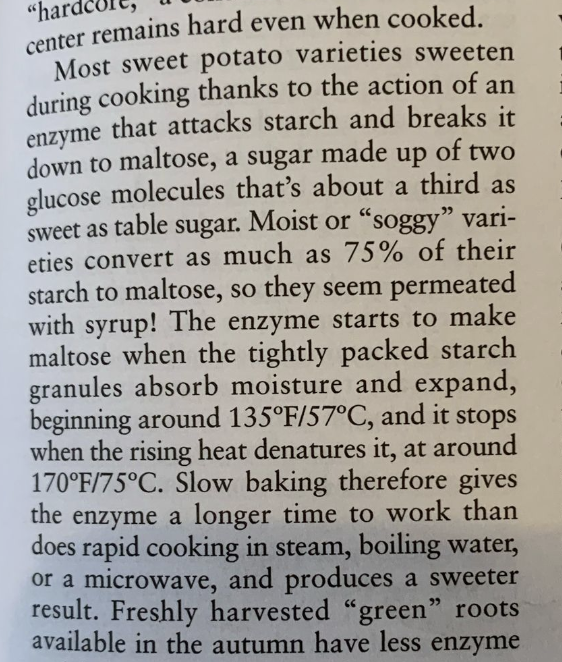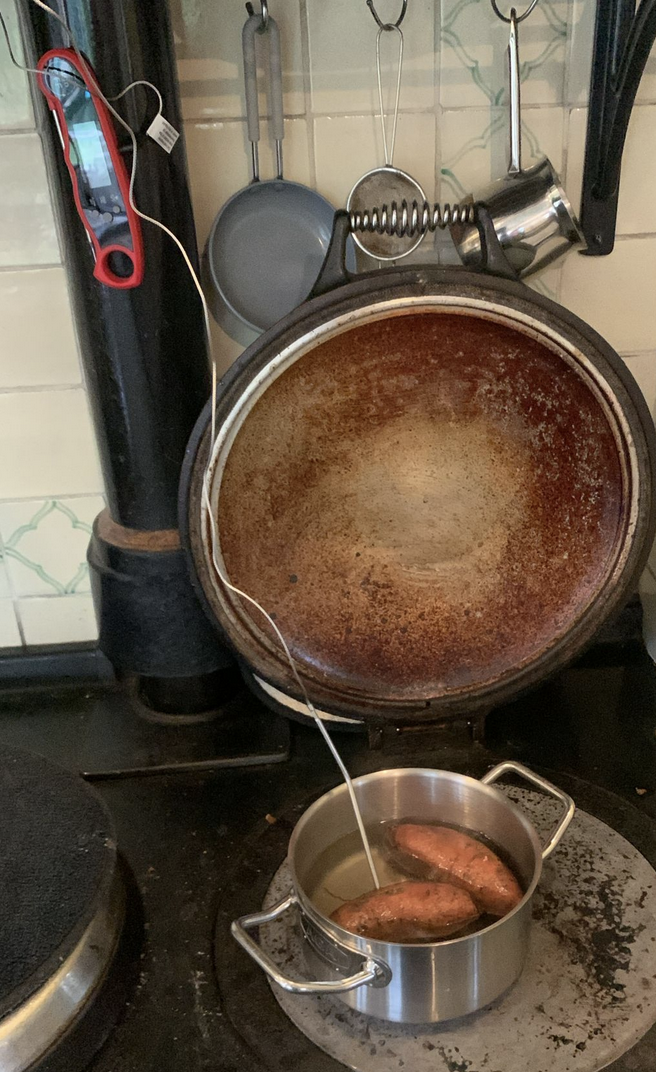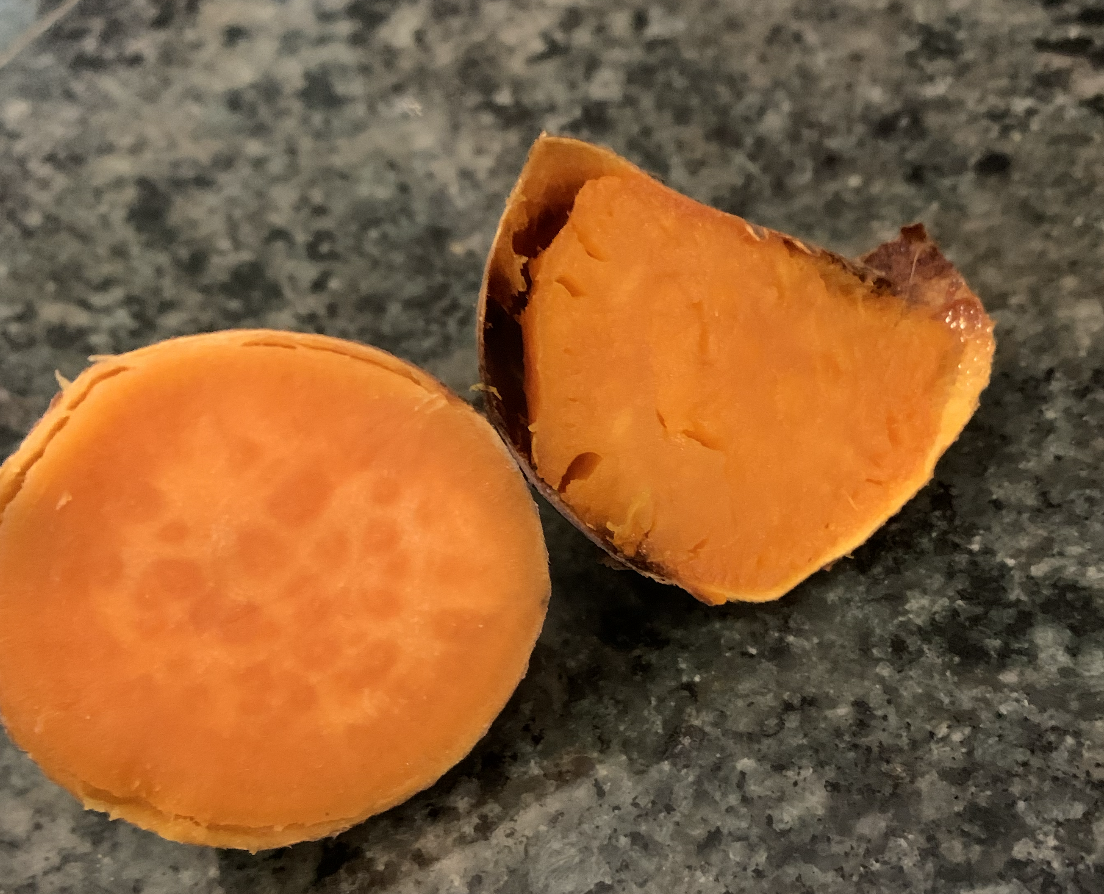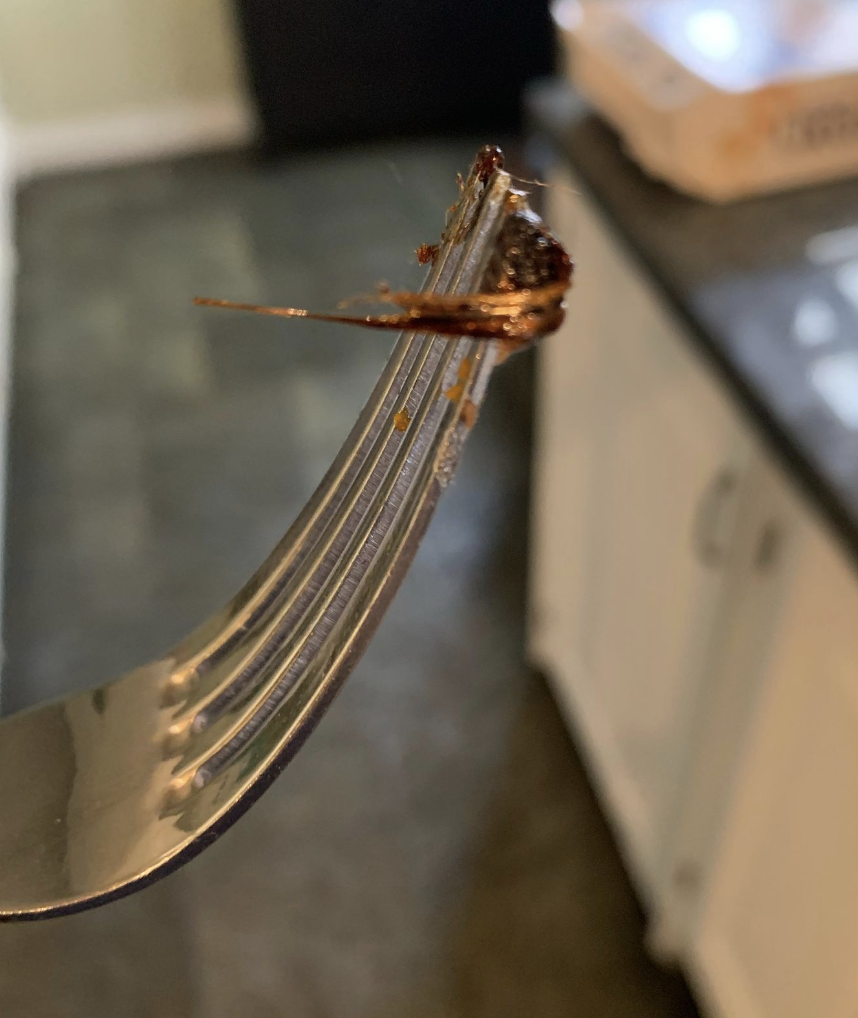Sweet Sweet Potatoes
I have been working through McGee’s On Food and Cooking and it’s extremely great.
This stuck out:

So I made a control batch of sweet potatoes for lunch (30 minutes in our baking oven) and also set up a test batch on our hob like this:

I am no sort of scientist: it took me quite a long time before I realised I could stick the probe into the middle of the sweet potato to get the core temperature.
I gave them 40 minutes keeping their temp between about 60 and 72 (this is increasingly justifying why I should get an immersion circulator). Afterwards they were effectively uncooked:

(The control sweet potato is on the right, the test one on the left)
I assumed the experiment has failed, so I threw them into the baking oven for 20 minutes anyway so I could eat the evidence, but when I pulled them out they were literally leaking syrup:

…and OMG they tasted amazing. I could easily eat them as dessert. Science!